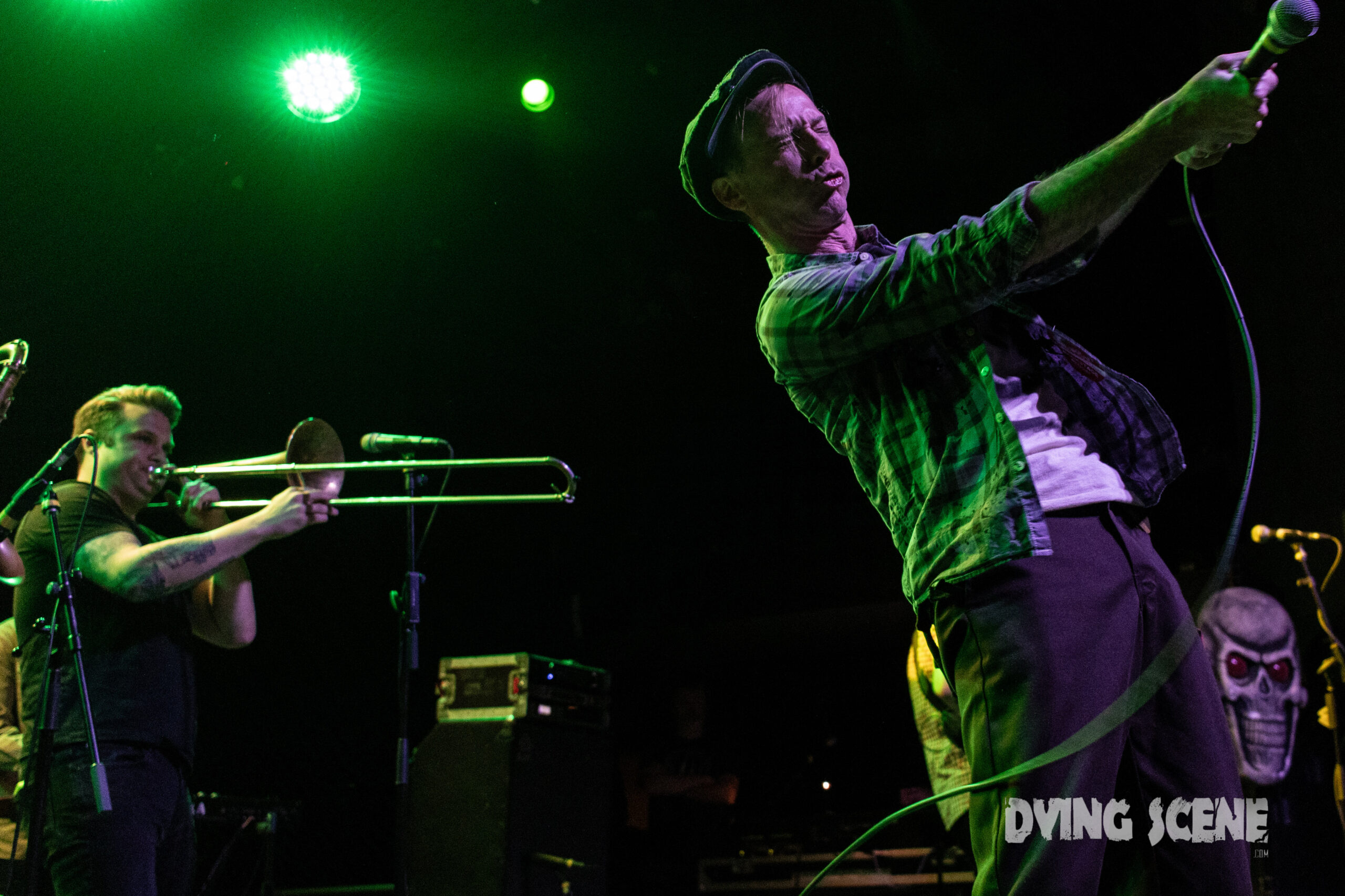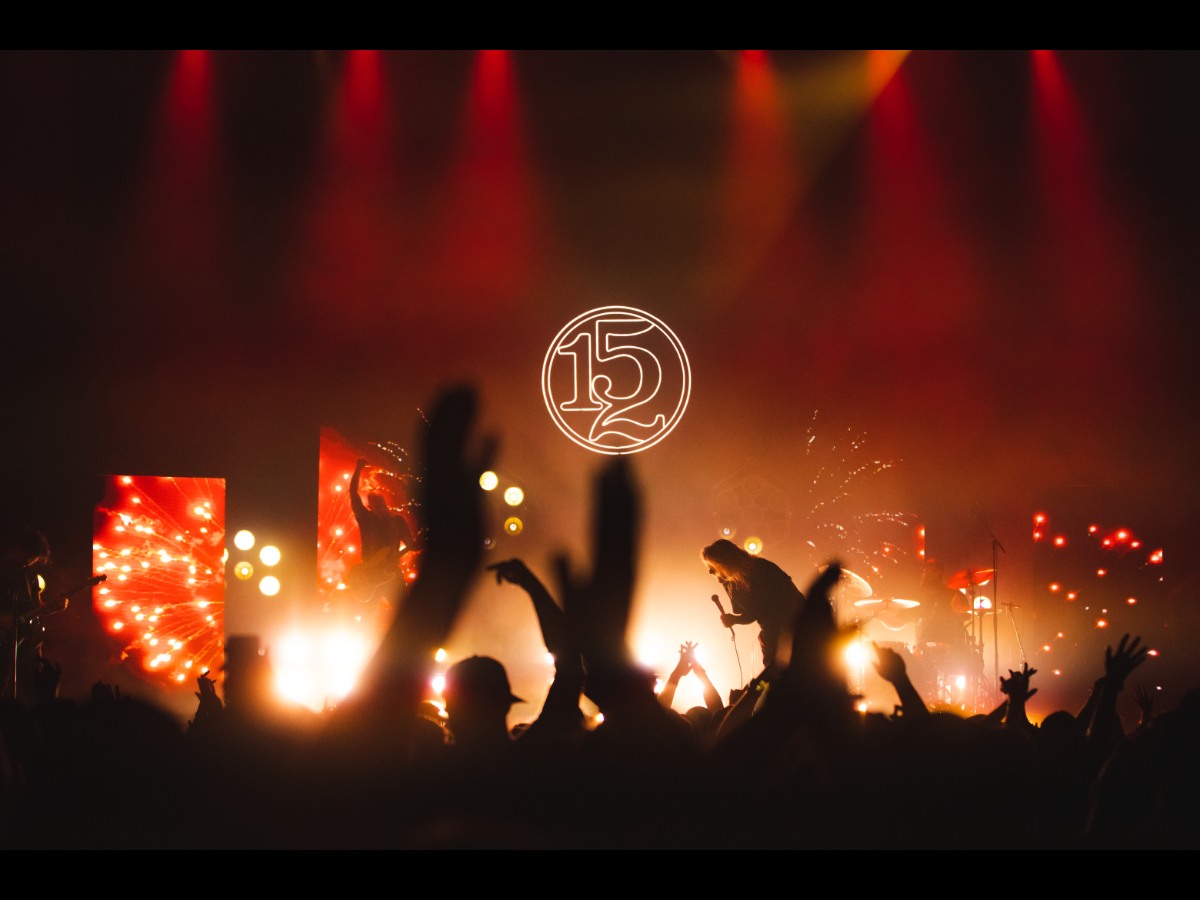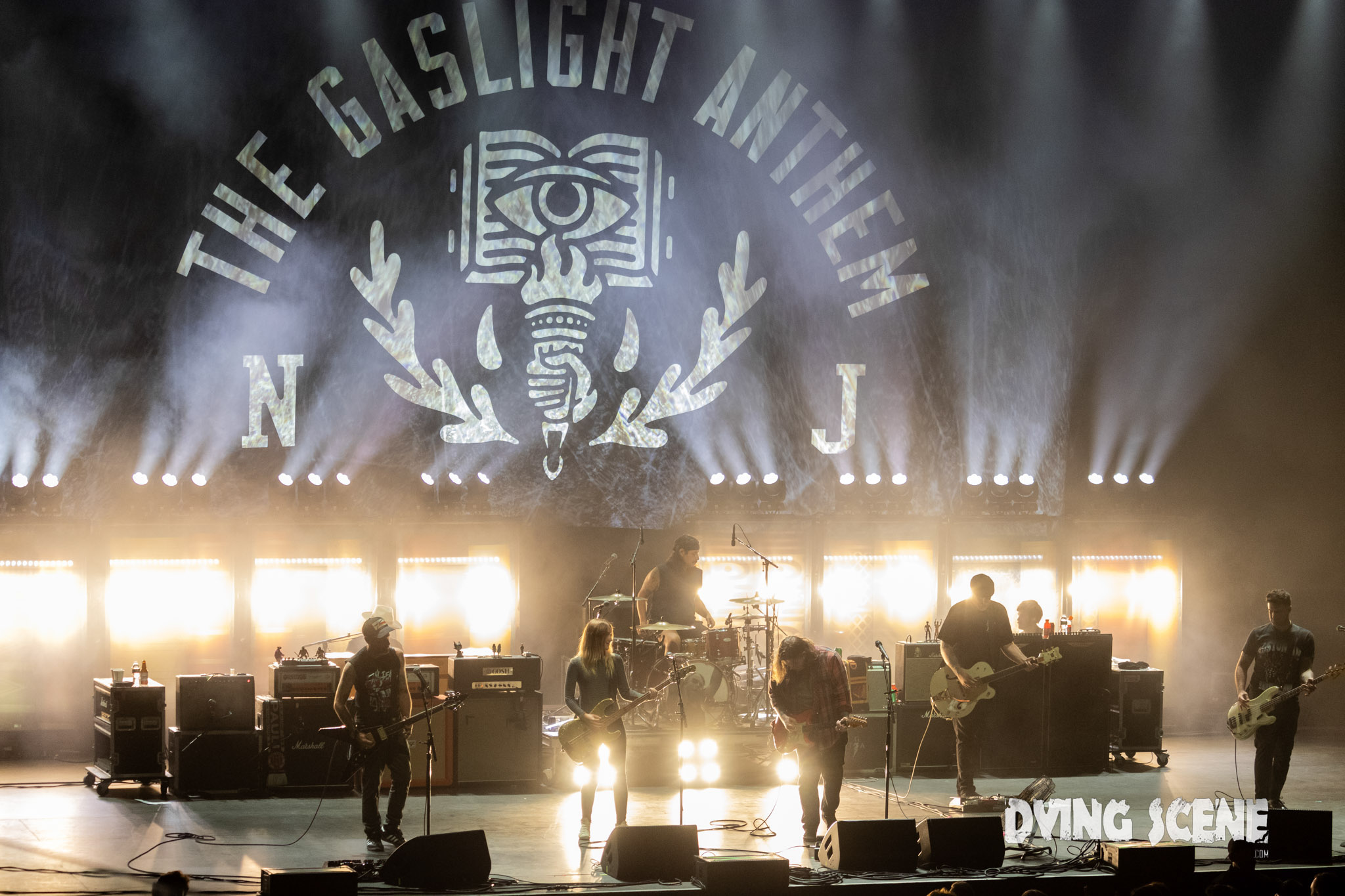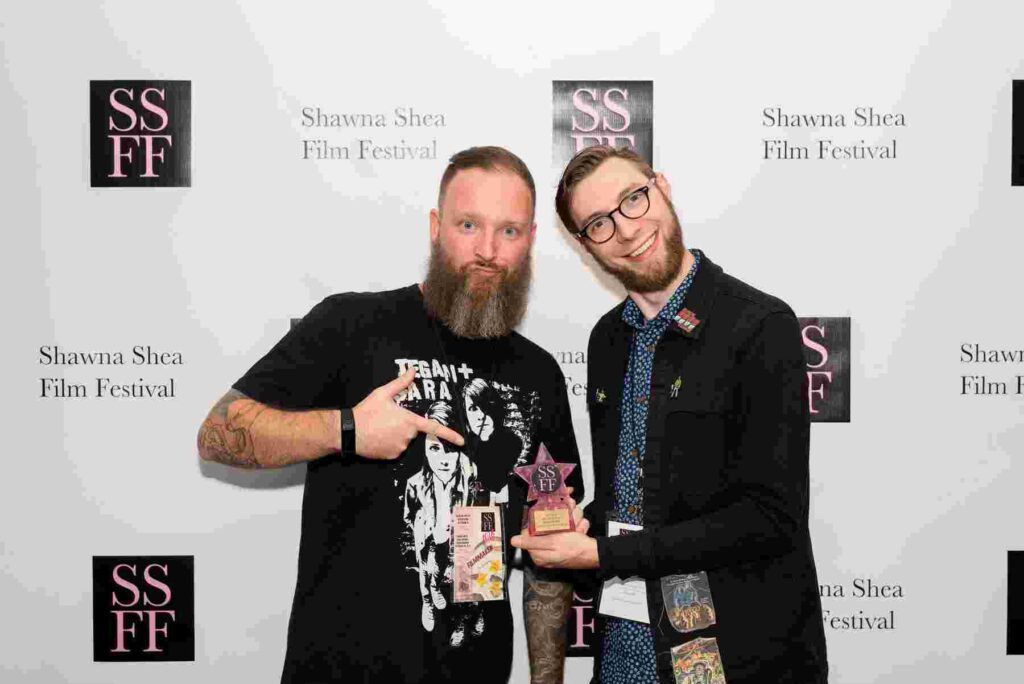
Don’t Forget to Leave, the brand new documentary depicting the life, creativity, and struggles of Boston hardcore and pop-punk legend Tim Landers, formerly of Transit and Cold Collective, officially premiered April 27 at First Congregational in Stoneham, MA. The film was directed by Bill Fulkerson and, although the story of Tim’s struggles was unknown at the time and have since come to light, Don’t Forget to Leave gives a brand new look into, not only what eventually caused an untimely death, but more importantly what made Landers such an extraordinary talent and person. Interviews from bandmates, family members, friends, and other, industry-specific specialists give a true inside perspective into the touring lifestyle and how it can open oneself up to addictions and struggles, a problem that has become far too common in the musician world.
Fulkerson is no rookie when it comes to documentaries, or even ones with the punk community in mind. 2020 saw the release of Safer Spaces, a film focused on Shawna Potter of War on Women and her fight against injustices within the punk scene. But Don’t Forget to Leave crossed into an entirely new realm for Fulkerson because of his personal connection to Landers and the Boston music scene.
“With the War on Women doc, I had met Shawna before and I knew her, but that was more of a respect thing, I respect what you’re doing, I would like to be able to share it with more people. But this was 100% a personal thing. So many of the people that are in the documentary are people that I’ve been friends with for like over 20 years,” said Fulkerson. “I can’t imagine having a connection with any other film I would ever make like this.”
When dealing with something as personal as the passing of a friend, family member, or band mate, the sensitivity of the subject matter can be somewhat of a hurdle in fully depicting a story of this nature. “We had a hard time getting people to commit to do interviews. Everyone was very suspect of us and what we were trying to do. Some of Tim’s family members were just like “it’s too raw, I can’t do it.” Some members of bands that he was in and people that he was also friends with that were in other bands were also very protective of their own stories and, didn’t necessarily want their story to become part of his story and things along those lines,” said Fulkerson.
The emotional struggle didn’t end with the conduction of interviews. Fulkerson also made mention of the crew’s difficulties in reliving a tragedy that was all too fresh in their lives. “It’s the single most difficult thing I’ve ever, ever worked on, but it’s also like been the most rewarding thing that I ever worked on because I was able to get to learn so much more about him through the interview process, talking to people that were with him at times that I wasn’t. But it was incredibly difficult, like I couldn’t edit. My production partner, Kyle, had to edit it.”
The outpouring of support that emerged from all corners of the music community following Landers’ death made the decision to make the documentary a speedy one. “Seeing how many people cared and how many people were genuinely devastated by the loss, we wanted to do this, not only for for Tim’s memory, but also for Tim’s family because Tim’s family is amazing. But we wanted to do it for all those people that were feeling that loss. I wish we got it done quicker.”
The documentary itself is split pretty evenly between portraying the hard-working, musician lifestyle that Landers had faced head-on, and how addiction and mental health struggles emerged to create a situation that was not only tortuous for Tim himself, but ultimately for everyone around him. A struggle that first emerged in the latter half of his time with Transit and continued throughout his Cold Collective years and beyond, Landers’ story unfortunately ends tragically while on the brink of sobriety. However, as devastating a situation as is outlined throughout the film, Fulkerson fully embraces the good that has come from making this, as well as the good that is still to come.
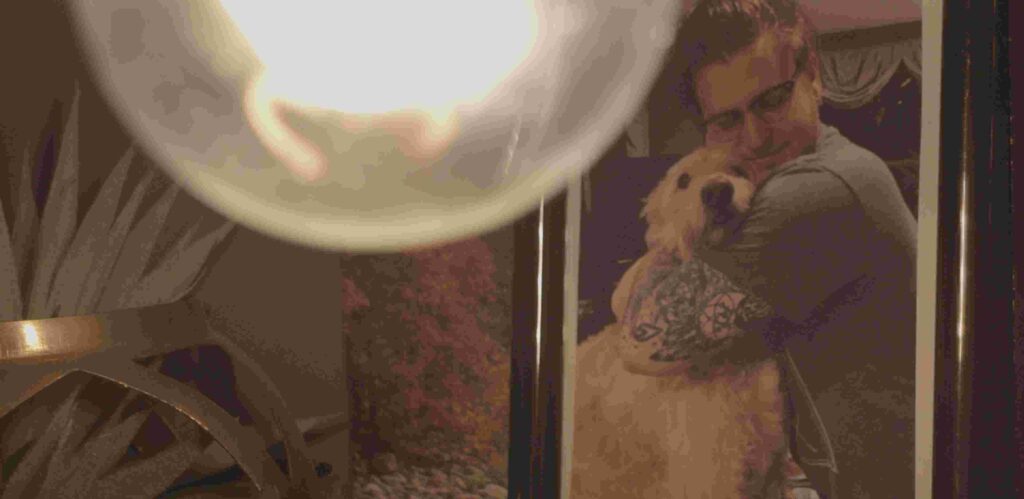
“First and foremost, [I want people] knowing that Tim was an amazing person, a gifted songwriter, an incredibly talented, great person… And also, if they didn’t know his music already, give his music a shot, take a listen to it.”
“But then there’s the other side of it too… I think it sucks that everybody knows somebody [that struggles with addiction], but Tim’s story is no different. I don’t feel like enough of those stories get told. One of the things we want to make sure is that if people see this film and they know somebody that’s struggling, that they know that people care about them and people want to be there for them.” said Fulkerson. “Tim was unable to defeat his demons, unfortunately, and that really sucks, but if somebody sees this and they identify that maybe somebody they know is having issues, struggling, they’re gonna check in, see how they’re doing, pay attention to the things that are going on if there’s behavior that they’re not sure if maybe this is an issue or not… it’s one of those where it’s a bummer, there’s nothing we can do about what’s happened in the past, but we can do our best to try to make sure it doesn’t happen again in the future.”
What really stuck out to me about this documentary was the lack of agenda that was being pushed, replaced instead by interviews and stories that were writing the script. The movie had ups and downs; at one instant, Landers is portrayed by his peers as this incredible songwriter, friend, and musician, then, not long after, addiction had taken its hold and Landers became seemingly unreliable, emotionless, and clearly addicted. As sad as it was to hear those closest to Landers talking about him in an unfavorable way, this truly shows the powers of addiction and doesn’t fictionalize a story that, I believe, will ultimately help a lot of people beat the struggles that grasped Tim.
What was most clear from the very beginning of the interview was that money was in no way the motive behind this film. With the hope of profits on the back-burner, I asked Fulkerson what would make this documentary a success in his eyes. Or had it already become one?
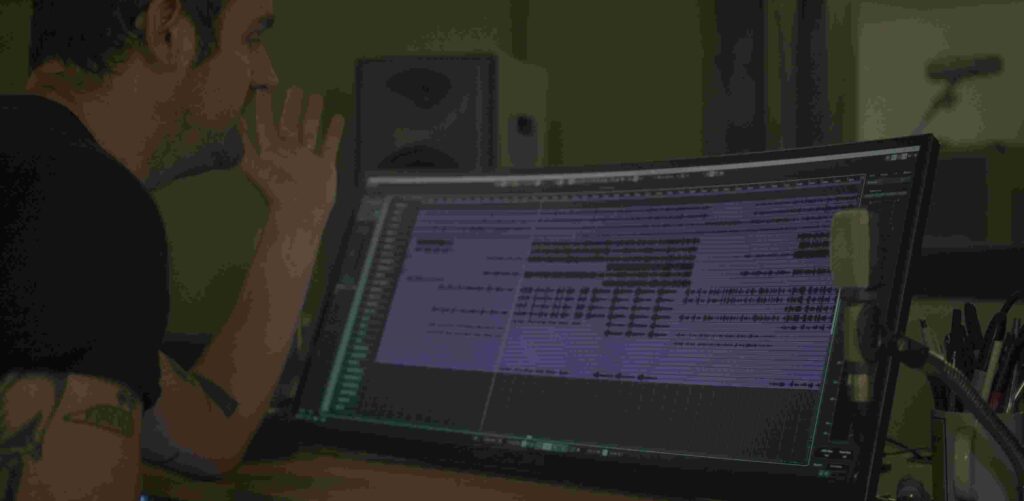
“I consider it a success already because when we did a private friends and family screening, Tim’s dad Terry flew up to Massachusetts… We showed it to friends and family and at the end of the screening, I went up to kind of do my little Q&A thing and Terry just gets up on stage and gives me a huge hug and he’s like “you guys fucking killed it”. So no matter what happens from here on, that moment with him was worth the five years of struggle, worth every minute put in editing it, everything we had to do. So it’s a success to me no matter what because of that, because of what it means to his family to be able to have this now.”
“But the other side of that is, I want people to see it, every film festival that will take it, down the road when we get it on streaming, every person that wants to take a watch. I want people to remember him and people to listen to his music and fire it up on streaming. I just want Tim to be remembered and I want people to listen to his music and just realize how special of a person he was.”
The documentary ends in the most fitting way possible, with Cold Collective in the studio piecing together old demos of Tim’s and making a full-length out of what’s salvageable. What blew my mind was the songwriting quality that Landers had left behind in the form of numerous demos, as well the actual sound quality that was salvaged of Tim’s voice and guitars. Fulkerson closes the film with a documentation of an incredible memorial of Landers and an unbelievably kickass full-length that I’ll link below.
Check out the full interview transcription of my chat with Bill Fulkerson, as well as Weathervane, Cold Collective’s 2021 record comprised of Tim’s post-mortem demos turned full-band tracks. I’m incredibly thankful to have had the chance to sit down and hear firsthand about the tragic, yet joyous life of Tim Landers. Keep a close watch for local film festivals in your area and streaming platforms for the release of “Don’t Forget to Leave”.
(Editor’s note: The following has been edited and condensed for clarity’s sake because a good chunk of this interview was just two guys shooting the shit.)
Dying Scene (Nathan Kernell NastyNate): So congrats on this documentary. I really, I enjoyed it and I think it was really well done. I’ve noticed with some documentaries that you can kind of tell when the director is shaping a narrative and they’re trying to shape everything else around a story they’ve already got and I don’t think that was the case with yours at all.
Bill Fulkerson: Yeah, it definitely wasn’t.
I think a good testament to that is the ups and downs kind of during the documentary. I wasn’t super familiar with Tim Landers’ story and so you’re seeing his best and you’re also seeing his worst told by the people closest to him. Did you have any kind of idea where this story was going first or was it entirely shaped around the direction of the interviews?
I mean, we knew, unfortunately, how it was gonna end and we kind of knew like the beginnings, but it was kind of filling in all those pieces in the middle and, like I knew Tim so I knew his life. There were a lot of ups and downs so it wasn’t necessarily something we planned for. Like we weren’t like “oh yeah, we’re gonna like make it a roller coaster.” Like, but we definitely knew that there’s high points and there’s low points and all that’s important to telling the story. We wanted to make sure that we told the story as true as we could while, you know, still like not taking advantage of what was a very, you know, sensitive situation.
Was there any difficulty in getting people to open up at first because this was a very touchy subject and left people very vulnerable?
Very much so, yeah. We had a hard time getting people to commit to do interviews. Everyone was very suspect of us and what we were trying to do like, like you said earlier when we were talking about, you know, having an agenda. Like people figured, you know, people just assume “oh you’re making a documentary, you have an agenda.” We didn’t have an agenda. The agenda was to tell a story. So there’s a number of people we talked to that immediately were just like “I’m not interested.” You know, some of Tim’s family members were just like “it’s too raw, I can’t do it.” Some members of bands that he was in and people that he was also like friends with that were in other bands were also very protective of their own stories and, you know didn’t necessarily want their story to become part of his story and things along those lines. But at the end of the day, you know, we got a great group of people to sit down and talk to us and, for most people, they found it very cathartic to do interviews and to be able to talk about Tim and talk about their good times with him, talk about being able to miss him and all of that. So the people that, you know, did step up, which was a very courageous thing on their part, I don’t know if I could have done it, it worked really, really strongly to tell the story because people were able to get their love for him out. And also their sadness and things they wish they knew, and kind of the whole nine yards.
And I think that’s a great way to go about it. So I don’t know a lot about how documentary film-making works in comparison to normal film-making. Did you plot this out beforehand and then kind of shape it, change it along the way as the interviews go? Or how did this work?
Yeah, you definitely kind of try to make an idea of what you think the story is going to be. But I mean, any documentary I’ve ever worked on, what we thought we were starting with is never where we ended up at the end of the day when the project was finished. As information comes out of people and as people are really like telling their side of it, things pop up that you didn’t know about because you hadn’t heard that side. Some of these things you’re going to pursue, some of them you’re not like, we definitely came across stuff that we were like “Oh, we didn’t know that, but we don’t think that’s pertinent to what we’re telling here.” And then things will come up and we were like “Oh, tell us more about that. That’s not something we realized.” So we had an idea and we veered where we could and needed to. And then also pump the brakes on stuff that we felt might not necessarily be what people wanted or what we wanted to tell as part of the story.
So I know you said you personally knew Tim, correct?
Yeah. So I met Tim when he was really young. He was probably about 14 and I was in local bands and he was a young kid starting to get into local bands. And I had this hardcore band called Taken By Force. It was one of those bands where I was the only constant member and we would have a revolving door. People would come in and out depending on what was going on at the time. And we had not played for a little while and then we were putting it back together and Tim had liked another band that I was in and he wanted to play. I was definitely a number of years older than him because he was just a kid. And then he jammed with us one day because we needed a guitar player and the kid just fucking ripped. He knew all the songs before he came in and he just like started taking liberties with things, like super respectful knowing he was coming into somebody else’s project. But, even at that age, I could see like this kid’s fucking amazing. But that band never went anywhere because he was forming Transit at the exact same time and within a few months, their lineup’s solidified and they were off and running before we even had a chance to like record anything.
We kind of mentioned this being difficult for the people being interviewed. Was this difficult for you to make?
Yeah. So, there were a number of years with Tim, like Tim’s Transit years where I didn’t have a lot of connection with him and they were out on the road all the time. I was an adult now and was married, I had a kid and was doing the family thing and I had stopped playing music. Then a few years after Transit, he was out of Transit and he got together and created Cold Collective and ended up doing Cold Collective with my friend Gus, who’s one of my best friends, and Paul and Darren, who are also really good friends that I’ve known for years. And I started working with them, they had my son in their first music video. It was cool to like see him and learn all these things that he’s done and stuff. And then he started to struggle with his addictions, which was something most of us never knew he was struggling as bad as he was. Like the whole Transit thing happened and nobody really knew exactly what happened. There was one story that this person would tell them one story that this person would tell and there was never really a clear answer as to what actually happened. And nobody wanted to ask because it was a really touchy situation.
So he’s doing Cold Collective, he’s struggling, Gus had told me he was going to rehab and he’s had all these issues. We made a documentary a few years ago called “Survival of the Film Freaks”, which is a documentary about cult movies and kind of how technology and stuff comes into that. And I asked him if we could use a Cold Collective song in one of the video montages and he was all for it, he was really rad about it. So afterwards I was like “Hey, listen, let’s document the making of the next Cold Collective record.” And I knew he was coming out of rehab and I’m like “let’s make this documentary about how, through all your problems and your issues, like music is what your higher power is.” And that comes up in the documentary a couple of times. Then, you know, he ended up passing away. Like we had talked a weekend before he passed away and we were going to start this documentary short about him and that wasn’t able to happen. And so I decided fairly quickly that we wanted to make this documentary about him because Transit was a pretty big band, people cared about him. We saw the outpouring of support when he passed away at his services, all the different publications that posted stuff, and people were really upset to lose him. So the process of making it was extraordinarily difficult because I’d been able to rekindle this friendship with a dude that I hadn’t really seen a lot; it’s the single most difficult thing I’ve ever ever worked on, but it’s also like been the most rewarding thing that I ever worked on because I was able to get to learn so much more about him through the interview process, talking to people that were with him at times that I wasn’t. But it was incredibly difficult, like I couldn’t edit, my production partner, Kyle, had to edit it. I was like “I can’t continue to relive this stuff, it’s just too much.”
So you’ve done documentaries before that are kind of similar subject matter-wise to this, I’m thinking of the one with War on Women, what would you say makes this different from the others, the personal connection you’ve got here?
Yeah, absolutely, me being so connected to the story. With the War on Women doc, like, I had met Shawna before and I knew her, but that was more of a respect thing, I respect what you’re doing, I would like to be able to share it with more people. But this was 100% a personal thing. So many of the people that are in the documentary are people that I’ve been friends with for like over 20 years, like I’ve known Jay Maas for over 20 years. These guys are some of my best friends for forever at this point. So I was able to really kind of connect to it so much closer than anything else I’ve worked on. I can’t imagine having a connection with any other film I would ever make like this.
What was the timetable for this, from when you kind of decided you’re making this to how long filming took to kind of where we’re at now?
All right so Tim passed away in February of 2019. We pretty quickly, from that point, decided that we were going to do this. We didn’t make any type of announcement or anything for about a year, we locked down some interviews before ever announcing anything. The interview we did with Frank Turner was actually the first interview that we did. We sat with Will from The Story So Far that Summer and I filmed probably like 10 or so interviews in that first year before we ever made any type of announcement that we were going to do it. Then we launched an Indiegogo campaign in March of 2020. I’m not sure if that time period sounds familiar to anybody, but we launched a campaign and I think six days, if I’m not mistaken, after we launched the campaign, COVID hit, the world shut down and we were then kind of trying to figure out what to do. So we finished the campaign during COVID, we reached the goal we wanted to reach. We were able to get some of the equipment we wanted to get with it, but then we couldn’t do anything with it because we couldn’t go anywhere for, what ended up being what, like a year, year and a half. So it took another year, year and a half before we got going. We ended up cutting a bunch of stuff that we wanted to keep, a trip to go to Florida where we were going to meet with a number of people. We were going to go to California and meet with a number of people. So, we get through COVID, we finished the principal filming, and then we edited probably for another year or so. We had the score done, Gus, who’s in the film and also in Cold Collective, did the score under his musical project, OK DOK. We also worked with the Cold Collective guys while they were making the record, Weathervane, which is the record they made after Tim passed away. All in all, it took us almost five years to completely finish everything.
Okay, that was something I was curious about, how soon after his passing you were set on making this, it sounds like pretty soon.
Yeah, I was locked in man. Seeing how many people cared and how many people were genuinely devastated by the loss, we wanted to do this, not only for Tim’s memory, but also for Tim’s family because Tim’s family is amazing. But we wanted to do it for all those people that were feeling that loss. I wish we got it done quicker.
So something I wanted to touch on was, coming from my perspective, I had heard of Cold Collective and Transit, but I wasn’t super familiar. I knew the name Tim Landers and I remember his passing. But I was never super familiar with anything to do with his story or his music. And so seeing interviews from Frank Turner and from the guy from The Story So Far, like that was a cool bridge for people who may not be super familiar with him, but know these other names. It gave a good scope on how impactful this was.
So Frank and Tim had met a number of times through just like touring and playing different festivals and stuff. They weren’t like buddies or anything like that, but they knew each other. They had done that video that was taped at Bamboozle together where they played that Blink 182 cover. But he always knew what Tim had going on and Transit was on their skyrocket up when Frank was kind of just getting into doing what he was doing. Like that video of them helping Frank Turner out is hilarious to think about now because of how big Frank Turner has become since. Same thing with The Story So Far, if you go through the film and look at the flyers and stuff, like Transit’s headlining shows and A Story So Far is opening up for them. Like Man Overboard is opening up for them and Transit’s the headliner. And now all these bands have become like cultural pieces of that time period, they were all like obsessed with Transit, which is amazing to think about.
When I was thinking through this interview, thinking about if even if Frank didn’t know Tim at all, I think it was a great point of view to throw in there just because Frank Turner’s kind of doing the extreme, I just talked to a buddy today who mentioned he’s trying to break the record for most shows in a 24-hour period. And he’s doing his 50 states in 50 days thing again. I think it was a great perspective to throw in there kind of showing how hard that kind of lifestyle can be on your body and how it can really open up yourself to addictions.
45 minutes to an hour and just everything the guy said was gold. That’s one of the toughest things about when you do a documentary like this, like you sit with everybody and everybody does like an extended interview. Like with The Story So Far, I’ve got an hour of footage and we only ended up using like two, two and a half minutes of footage of them just because that was the stuff that worked best.
So the audio recordings you had of Tim, not the musical recordings, but where you had excerpts of him talking about why he does music, what did you have to choose from for those, did you have a large pool of recordings or was that kind of difficult to fit in there?
Actually, it’s funny because we think about how it is now and how now there’s a million and five podcasts and there’s a million blogs and a million vlogs, every magazine has a website, every newspaper has a website, there’s all these things. Everybody has a phone at a show now, but if you think back to 2008, 2009, that was really in its infancy so there wasn’t nearly the amount of media to pull from in terms of video interviews or audio interviews and the stuff that we did have to pull from, really the quality wasn’t that great. It was actually pretty difficult to find good stuff that wasn’t just fluff pieces about like the new Transit record. That video with Jesse Cannon, which we used a lot of audio from in the movie, his stuff was great. We’ve got a few really good podcasts that had a really good sound and Tim had done an interview with me for my podcast before or right after Cold Collective’s EP single that had come out after the first record. He came into the studio and played a few songs and we did an interview. So we got some good stuff there too, I wish that we had more. I had, you know, a kind of vision when we started like Tim’s voice basically narrating the film, but we just didn’t have enough to do it. But I’m really happy with what we did have and we were lucky to have what we did because in that time period we might have potentially not had anything.
Is there anything you hope for people to get from this film, whether it be about addiction or just understanding who Tim was and the type of person he was, was there anything you’re hoping people walk away with from this film?
A few things, actually. First and foremost, knowing that Tim was an amazing person, a gifted songwriter, an incredibly, talented great person, good family. He was a family guy, loved his parents, loved his brothers and sisters, loved his girlfriend, just that he was a great dude. And also, if they didn’t know his music already, give his music a shot, take a listen to it. I personally think the Cold Collective is some of the best. I genuinely feel that way because I think the songs were just amazing.
But then there’s the other side of it too where everybody knows somebody that has struggled with addiction in some form, whether it’s opioids, alcohol, mental health issues, like everybody knows somebody. I think it sucks that everybody knows somebody, but Tim’s story is no different. I don’t feel like enough of those stories get told. One of the things we want to make sure is that if people see this film and they know somebody that’s struggling, that they know that people care about them and people want to be there for them. Tim was unable to defeat his demons, unfortunately, and that really sucks, but if somebody sees this and they identify that maybe somebody they know is having issues, struggling, they’re gonna check in, see how they’re doing, pay attention to the things that are going on if there’s behavior that they’re not sure if maybe this is an issue or not. So we want to make sure, it kind of sounds corny to say we don’t want anybody else to have to go through this again, but it’s true like nobody wants to see anybody struggle and nobody wants to see anybody succumb to addiction. I think we’re all so hyper-aware of all of these things in the world now, but if you go back to 2008, like people didn’t talk about mental health the way they do now. I think if Tim potentially had that, maybe ten years ago as opposed to struggling for a number of years and then trying to overcome it, it could have been a different situation. So it’s one of those where it’s a bummer, there’s nothing we can do about what’s happened in the past, but we can do our best to try to make sure it doesn’t happen again in the future.
I totally agree, I think two of the most impactful parts of the film for me were, one, when it’s Tim’s dad’s talking and he kind of just brings up how he’s always kind of had a soft side for homeless people and people struggling because they’ve got parents, they’ve got brothers and sisters, and then, two, I think also having the mental health professional giving her thoughts on it, that was really valuable too.
So I was curious, with the record they ended up piecing together that kind of concluded the documentary, they touched on it a little bit, but how difficult was that? Just from the limited experience I have of recording, that seems impossible, getting that kind of professional quality from essentially demos.
It virtually was, but we were lucky. I shouldn’t say we, they were lucky, the Cold Collective members and Jay Maas who was the producer, they were lucky that Tim demoed everything a thousand times. He had tons of unreleased demos on his computer and he had all these different things he’d been working on and luckily they had been working on what that record was going to be in terms of what songs they wanted to include on it. And they also had a recording session in between one of his stints of rehab where they had kind of gotten, not finalized versions of songs, but like more finalized versions and so they had all those tracks and they had all his demos. Tim’s dad, Terry, let Paul, the drummer from Cold Collective, take Tim’s computer and they basically went through it. There’s a little bit of footage in the movie where they’re sitting around Jay’s console there and they basically took all the stuff that they thought they could use and kind of figured out what they wanted to do. Tim had different tracks for stuff, but we isolated the stuff we could use and then took out the stuff that we couldn’t. We had a lot of vocals and a lot of guitars of Tim’s and then basically the rest of the band kind of came in and recorded the guitar tracks and drums. It was a daunting process for sure and I’ve got like seven or eight hours of footage of them in the studio working on that record, which is only a fraction of the time they actually put into it.
That blew my mind hearing the quality, the vocal quality, that they were able to get from demos.
From talking to you, I can tell this isn’t a money thing, that that’s not the goal with this. What would make this a success to you from a reception standpoint, like is there something that could happen after this release that you would make you consider it a success? Or do you already consider it a success?
I consider it a success already because when we did a private friends and family screening, Tim’s dad Terry flew up to Massachusetts for it because they don’t actually live here anymore, they moved out of state. We showed it to friends and family and at the end of the screening, I went up to kind of do my little Q&A thing and Terry just gets up on stage and gives me a huge hug and he’s like “you guys fucking killed it”. So no matter what happens from here on, that moment with him was worth the five years of struggle, worth every minute put in editing it, everything we had to do. So it’s a success to me no matter what because of that, because of what it means to his family to be able to have this now. But the other side of that is, I want people to see it, every film festival that will take it, down the road when we get it on streaming, every person that wants to take a watch. I want people to remember him and people to listen to his music and fire it up on streaming. Maybe we get a swell, maybe Rise will repress the Transit records. I just want Tim to be remembered and I want people to listen to his music and just realize how special of a person he was.

